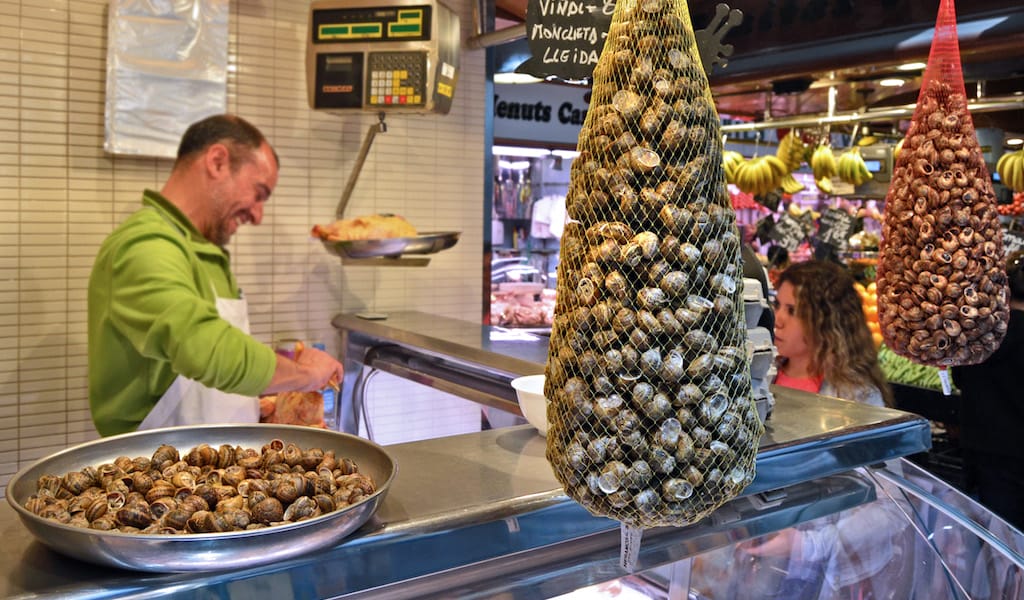When it comes to fragrances, nothing makes you stop in your tracks and moan in delight more than the redolence of mtsvadi roasting on the coals of grape vine trimmings. It’s the juicy sizzling fat basting the chunks of skewered pork that clinches it and makes whiffing the browning meat just as good as eating it.
For one October weekend every year, the entire center of Tbilisi is immersed in wafts of barbecue from perhaps hundreds of hot grills, called makhali, as men, teary-eyed in billows of smoke, turn the skewers in pop-up sidewalk picnic parties. This is part of an annual event called Tbilisoba, a kind of Georgian Oktoberfest, but much cooler.
The bash is essentially a harvest fest and goes back to 1979, when Eduard Shevardnadze, Georgia’s First Secretary of the Communist Party, introduced the event to counter attendance at religious gatherings and celebrate the capital and its 1,500-year history.
Some historians say the festival “had the unintended effect of engaging Georgians more intensely in their national history,” which may have been the case in the 1980s, but when we first experienced it in 2002, the only thing anyone was engaged in was getting good and drunk.

Back then, the city blocked off a section between a Soviet monument known commonly as “Andropov’s Ears” and Hotel Iveria, the shabby high-rise that was inhabited by Georgians displaced from the war in Abkhazia. Here, old cars and trucks sold freshly butchered meats, produce and wine from their trunks. Party tents and tables were set up along the sidewalk. The steps going down to Inashvili Street in the back functioned as public toilets.
While many local Tbiliseli avoided the rumpus, considering it too filthy and uncultured, we reveled in the chaos and camaraderie. One friend waved us into a tent full of uniformed Interior Ministry cops. These guys were the enemy – at the time, it was widely known that they were behind some very heinous acts, like kidnapping and trafficking.
That didn’t stop us from doing the vakhtanguri, a custom that symbolizes friendship by linking arms, knocking back cups of wine to the bottom and planting three kisses on each other’s cheeks. You never know when you’ll need a friend in the Interior Ministry.
Balancing commercialism with the rawness of former times to create a remarkable urban fair.
The two-day round-the-clock tailgate has gone through some changes over the years since. For one, Andropov’s Ears are gone and the Iveria is now a swanky Radisson Hotel. After 2003, the government tried taming the orgy, first by moving it away from what had been renamed Rose Revolution Square, then by civilizing it with more family-friendly accents.
At first, the new and improved Tbilisoba didn’t interest us. The celebration became more a tribute to the government than the city, with cameras focused on the mayor and his minions doing things like putting on rubber boots to crush a huge tub full of grapes. And it was no longer possible to run down to some guy slouched in the trunk of his Lada with chacha for sale at midnight.
Now, however, the city has managed to balance commercialism with the rawness of former times to create a remarkable urban fair that has loads of activities for children and an endless amount of meat and wine for adults.
For one American couple, Tbilisoba was their first introduction to the country and where they discovered what “friendly” means in Georgia when a woman and her young son asked if they could share their table.

“And then they offered us barbecue and tomatoes from their plates,” John, the American said. “We understood it would have been impolite to say no.”
This year, we returned after a long absence, only this time with a child in tow. It was a warm, sunny autumn day and all the action was in Rikhe Park in the Old Town, with sport demonstrations, kite flying, dancing workshops and exhibitions. After an hour, the searing smell of mtsvadi became unbearable and we had to investigate.
The closest makhali were down by the Mtkvari River, which was covered in clouds of barbecue smoke. The booths were sponsored by various eateries from around the city and were priced accordingly. But we couldn’t resist.
If only we had known that a jaunt away, next to the river road, was a line of tents full of the type of wine-guzzling, pork-popping riff-raff we fondly recall from the old days, when Tbilisoba was nothing more than a harvest bacchanalia. Today it offers another kind of indulgence, one the whole family can enjoy.
 May 12, 2021 Building Blocks
May 12, 2021 Building Blocks
For thousands of years, snails have been an easy source of protein, particularly during […] Posted in Barcelona May 24, 2018 Building Blocks
May 24, 2018 Building Blocks
For thousands of years, snails have been an easy source of protein, particularly during […] Posted in Barcelona July 23, 2024 Fıccın
July 23, 2024 Fıccın
When Leyla Kılıç Karakaynak opened up a tiny restaurant on Kallavi Street in Istanbul's […] Posted in Istanbul
Published on October 20, 2017
Related stories
May 12, 2021
BarcelonaFor thousands of years, snails have been an easy source of protein, particularly during lean times. But for the Romans, these slimy mollusks were more than just a back up – a meal of snails was considered an exquisite feast. The Romans were experts on the subject. They studied and classified snails; they knew where…
May 24, 2018
BarcelonaFor thousands of years, snails have been an easy source of protein, particularly during lean times. But for the Romans, these slimy mollusks were more than just a back up – a meal of snails was considered an exquisite feast. The Romans were experts on the subject. They studied and classified snails; they knew where…
July 23, 2024
IstanbulWhen Leyla Kılıç Karakaynak opened up a tiny restaurant on Kallavi Street in Istanbul's Beyoğlu district in 1996, she couldn't have predicted that she would end up practically running the whole street. That small restaurant, Fıccın, is now spread across six buildings on the same block-long pedestrian-only street and has become an Istanbul institution. The…
















































































